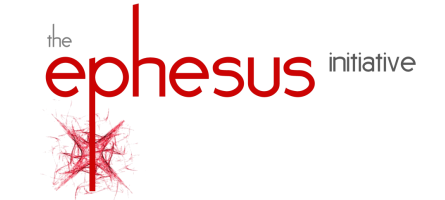Even as I wondered what the outcome of the UK election would be, I was more concerned at the implications for religious freedom. The erosion of freedom over the past few years was not just the result of the party in power but goes much deeper into the nature of politics and society. Many remain in authority who have ironically favoured equality enough to persecute dissent, and I am wary of the deals that will be made: what will be sacrificed on the altar of politics? Will religious freedom be a victim? Yet as I ponder the future of this country and religious freedom I am challenged by the words of a man who stood against one of the greatest evils ever known. Dietrich Bonhoeffer wrote “The Church is nothing but a section of humanity in which Christ has really taken form…What matters in the church is not religion but the form of Christ, and its taking form amidst a band of men”. This is our primary act – to be the vessel of Christ, to reflect Him to the world. Do we do this? Can we say that Christ has really taken form in us? Indeed, do we even know how to tell?
But I wonder whether a substantial portion of the church even knows how to tell if it is representing Christ, and it is the rights based defence, the anger at the treatment of Christians which bothers me because of this. Considering Bonhoeffer’s words again, I wonder whether our reliance on legal rights is a sign of our own spiritual weakness and bankruptcy. I was recently told by a friend of a Chinese church leader who exclaimed to him (my paraphrase) “While you discussed the organisation of the church, we were raising the dead”. What a challenge! When was the last time a senior clergyman in the UK spoke of amazing displays of God’s power? If we focus on our rights and presumed superiority of our faith, then we fail to raise the dead. And this is not just the literal dead; for look around you. Have you noticed the hopelessness, the fear and the death in the eyes of those who walk past you every day? Jesus came to bring them freedom. But they cannot choose what they do not know. Jesus asked us to bring people to Him, not to take religion, not to form religious bands which happily tolerate a Christ-less church, but to be the band of men and women in which He dwells. Jesus’ freedom is not based on legal rights but on freedom of the soul which cannot be taken away by any policeman, magistrate, judge or king. A concern with our rights and freedom does not bring freedom to the lost, but it is displays of the gospel in acts of love and power that bring freedom.
One of the greatest threats to us as a church in the west is our level of comfort. The Chinese pastor prayed to raise the dead, prayers prayed out of necessity. We are comfortable but do we truly live? We have much to satisfy our hunger, much from what we seek to draw life – food, fashion, entertainment, cars, homes, holidays, sports. As Christians we know that only Christ satisfies, but we are not immune to the pull of the flesh, the temptation to seek the world before Christ and most particularly to control our lives rather than surrender them to Him. Scripture tells us that Jesus offers us a river of life, water that we can drink such that we never grow thirsty again. Even as we see the world try and feed its hunger without Him, have we too, in the church grown comfortable to the point that we have lost sight of our need for Him? Are we too used to discussion of church rights and politics and forgotten how to raise the dead?






